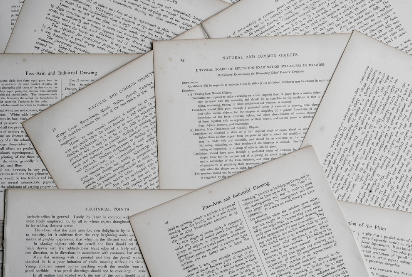So, what comes next after the signed contract has been delivered to the title company and the title commitment is complete? The Deed Packet!
The number one thing to remember is: EARLY SIGNATURES MEAN SMOOTHER CLOSINGS!
The sooner the completed deed packet is sent back to the title company, the easier it is to complete the pre-closing tasks. For example, the information release allows us to obtain the mortgage payoff quote. The deed and other documents to be recorded must be reviewed to ensure they will meet the county recording requirements.
The second thing to remember is: Let the title company know asap if the seller doesn’t live close by.
If the seller lives some distance away, they may need extra time to ship the completed documents back to us in time for closing.
Here is a breakdown of the most common documents in the Deed Packet:
The Deed. (No kidding, right?)
However, this is the most important document of the bunch. Please ensure that each party signs it in the presence of a notary. As we mentioned in a previous blog, it is also paramount to keep the same original formatting to ensure it is accepted for recording. And, it really makes our job easier if all of the documents are printed single-sided, not double-sided!
The Affidavit as to Debts, Liens and Indemnity.
This is a complicated title for a document that actually has a rather simple purpose. The purpose is for the seller to confirm that there are no other liens that can attach to the real estate. Each party will have to sign in the presence of a notary. However, the important thing to keep in mind are the checkboxes that usually appear on pages 2 and 3. Each of the statements that accompany the checkboxes should be read carefully before being marked off.
The Authorization for Release of Information.
All mortgage holders require that 3rd parties receive authorization from the mortgagors to receive any information from them. Without this document, we can’t prove how much money will be needed to get the mortgage released. It is also important for the seller to fill out the name of the lender, and the account number if they have it. This is because there are certain types of mortgages that don’t have to report to the county when they are sold. It could potentially delay closing if the title company doesn’t know who is actually holding the mortgage.
The 1099 Tax Information Sheet.
Yes, the title company must report most sales to the IRS. Besides the signature lines that are clearly visible at the bottom of the page, there is other information that is needed. Near the top of the page, please guide the seller to fill in their social security or tax ID number(s), their new/forwarding address, and their phone number. We have to mail out a copy of the actual 1099 form to each seller for the next tax year, so a valid mailing address is really, very helpful.
Here at Tallgrass Title, we also include Fraud Warnings to put people on their guard. This is very important to us, since fraud is becoming more common.
These are the documents that are included in most Deed Packets. There may be other documents specific to the transaction, but they usually don’t appear as often. Please feel free to reach out to us if you have any questions about any of the documents you see in the Deed Packet. We are always happy to help and will even send out a notary to meet with your sellers who are in the area!







